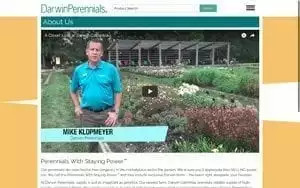
“It makes more sense to monitor at the source,” said Mike Klopmeyer, Ph.D., general manager of Darwin Perennials in West Chicago, Illinois. His company worked with APHIS, AmericanHort and SAF on the new pilot program and is one of five businesses participating in the pilo
A six-month pilot program that launched October 1 could streamline the importation of plant cuttings produced in offshore facilities, speeding their entry into the U.S. while making inspections for pests and diseases more efficient.
The U.S. Department of Agriculture’s Animal and Plant Health Inspection Service (APHIS) currently inspects roughly 1 billion imported plant cuttings each year at two stations, in Miami and Atlanta. Through the new program, five participating companies — Ball Horticultural, Darwin Perennials, Dümmen Orange, Proven Winners and Syngenta Flowers — will instead certify their offshore sites under strict standards for facility construction, security, production and sanitation, pest management, training, and record-keeping.
“It makes more sense to monitor at the source,” said Mike Klopmeyer, Ph.D., general manager of Darwin Perennials in West Chicago, Illinois. “It’s a proactive way to relieve the pressure on APHIS at the border, knowing that there is a system in place at the farm level.”
The program is a result of about a year’s worth of planning, and an example of industry and government coming together, said Klopmeyer. AmericanHort and the Society of American Florists collaborated with APHIS to establish this pilot program
At the end of the program, APHIS will review its findings, and if the outcomes are good, the new protocols will be more widely implemented.
“We’re hopeful the pilot program will lead to a more efficient import process when the risks have been identified to be sufficiently low and necessary standards are in place at production sites,” said Drew Gruenburg, SAF’s COO.
In fact, as Klopmeyer pointed out, the pilot program is based on a framework of success.
In the early 2000s, an outbreak of Ralstonia became a serious threat to geranium producers — because the pathogen also affects potatoes, part of the U.S. food supply, it was considered especially dangerous. Coordination between APHIS and the floral industry, led by SAF, helped establish an offshore certification program, one that’s successfully prevented outbreaks for nearly 15 years.




